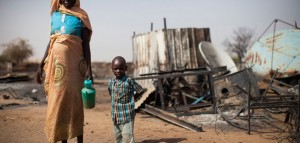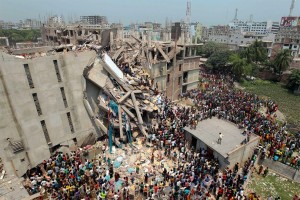The Financial Impacts of Foreign Investments to Africa
 With abundant natural resources and workforces, Africa attract multinationals to invest in Agriculture industry. The economic growth of Africa is always the front-runner in the world due to the investments from foreign countries, but this doesn’t efficiently contribute in boosting the government’s revenue and reducing poverty.
With abundant natural resources and workforces, Africa attract multinationals to invest in Agriculture industry. The economic growth of Africa is always the front-runner in the world due to the investments from foreign countries, but this doesn’t efficiently contribute in boosting the government’s revenue and reducing poverty.
Why? Multinationals would use their offshore shell companies to evade the taxes. The tax incidence on the profit would shrink the total profit of the company, therefore they could decrease the cost and maximize the profit through evading taxes. As Africa is providing with equal amount of supplies to the international investment companies, but obtain less money from tax; government is not able to improve the living standards of Africans.
According to the year’s Africa Progress Report, Africa annually has a estimated lose of US$1.3 billion on fishery and US$17 billion on logging through unregulated and unreported fishing and logging activities. The evasion of taxes and unregulated profit cause tremendous impact to the economy of Africa; With transparent investment and taxes, Africa could quickly increase government revenue and get out of impoverished situation. Kofi Annan, chair of the Africa Progress Channel said, “facilitate tax evasion and, in some countries, corruption, draining Africa of revenues that should be deployed against poverty and vulnerability.” From the view of economics, the supply curve which represents African supplies is extremely elastic, and this causes the profit to increases a little while the quantity increases tremendously. A regulation on the transparency of foreign investment to Africa is eagerly needed, in order to control the evasion of taxes and help Africa to be prosperous, otherwise, Africa will still be tangled to step out of poverty.
Picture Reference: <http://www.borgenmagazine.com/wp-content/uploads/2014/04/africa.jpg>
Article Reference: “Africa Progress Panel Calls for Responsible Investment and Business Practices in Africa Share Var Addthis_config = {“data_track_addressbar”:false};.” Africa Progress Panel. Africa Progress Panel, 4 Aug. 2014. Web. 05 Oct. 2014.

